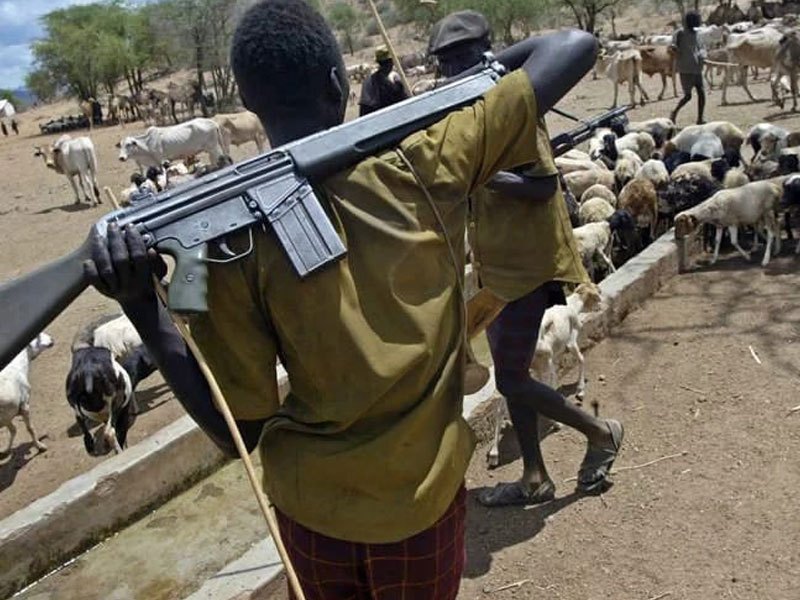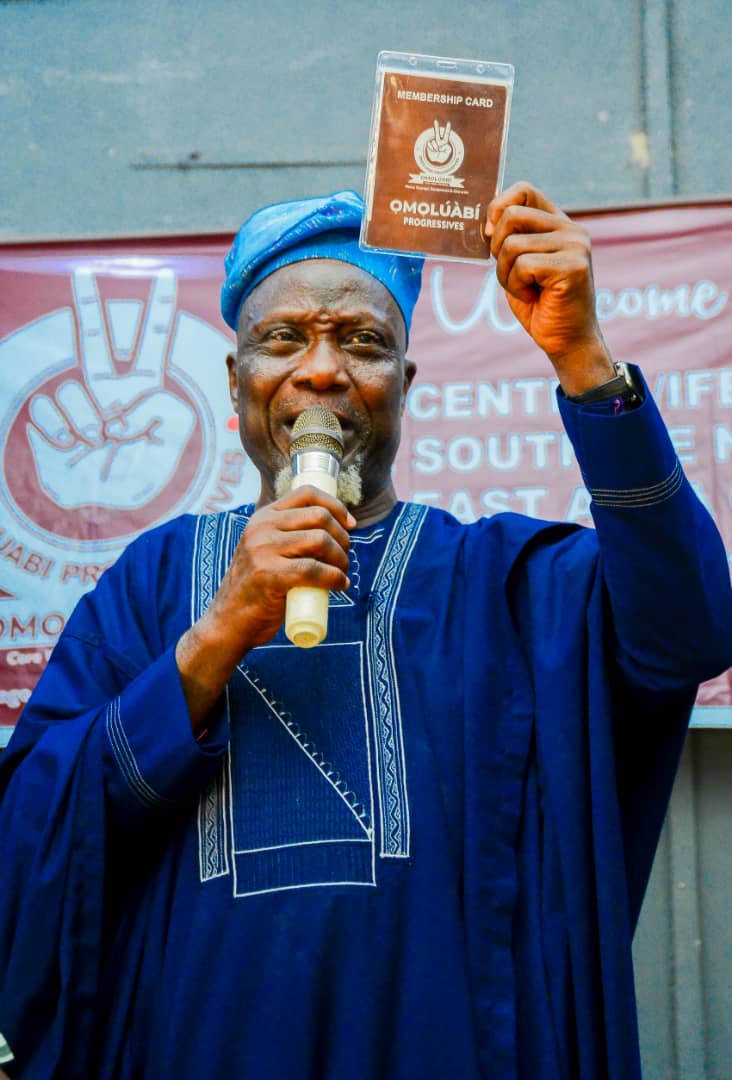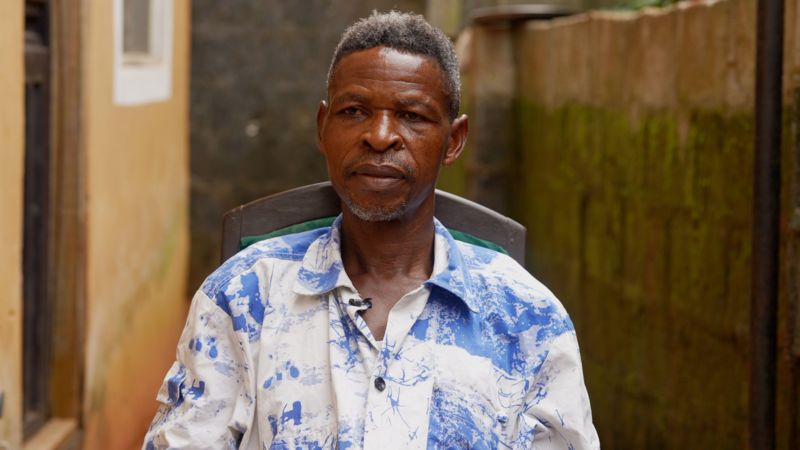A Day To Mourn Ourselves By Lasisi Olagunju


What will happen if you break the law? A colleague based in Kano told me at the weekend that Southern Nigeria wastes itself obeying the law. Where he lives, he said, there is no such encumbrances as law and morality. Whatever serves you is sanctioned, and everyone knows. It is a free world, a democratic state of nature. My colleague stressed that up north, the law bends and serves elite-interest. He was talking about security; about accountability in government; about the coming elections and the ones of the past. Kano voters gave two million votes – all valid- in 2015. It can give anyone five million votes in future; if you like in the south, you can keep shouting underage voters, card readers etc, that is your problem, he told me. Interesting.
People who cut corners and get away with it think others are fools. Like uncontrolled leprosy, lawlessness is seeping in and afflicting the whole nation. My friend said when you engage opponents who do not obey rules, it is stupidity to play by the rule. It is worse when even the referee is blind to the rule of the game. “If Kano can deliver five million votes, who says Lagos cannot deliver seven million?” He asked. And I chorused: Why not? – if the law is waived for all! But the spirit of disobedience does not evenly perch on all players. There are still people who prefer the foolishness of obedience to the adulation that comes with unearned epaulets. Is it not said that it is the lunatic who thinks the monkey is not wise? Monkey is not foolish, it is wise; only that it has its own logic!
Rejecting the law has consequences. Cutting corners has a prime advantage: You arrive earlier than the law-abiding. But that is where it ends; it soon comes back to haunt the unworthy. Not obeying rules has consequences — one of which is the fact that the North truly has political power which has not served it positively. Its politics has produced for it a super-rich elite. But it has also hatched an ocean of very ordinary people wracked by poverty; by disease; by insecurity. The streets of the north are home to denizens of addiction to everything negative. A system of infractions will drink blood. And it is guzzling just that in the north. It has bounteous harvests of insecurity and killings everyday across its swath of territory. The joy of political power abduction now manifests in sobs of sorrow and mourning. Thousands have died; hundreds are dying; millions have been displaced.
“In February, 21 villagers were killed in an attack by suspected herdsmen in three communities in the Atakad district of Kaura, Kaduna State. Witnesses said the herdsmen killed, looted and burned the villagers’ houses. In June, a communal clash in the Mambilla Plateau of Taraba State left scores of people dead, mostly herdsmen and their families. In September, at least 20 people were killed when suspected herdsmen invaded Ancha village in the Miango district of Jos, Plateau state… In October, 27 people were killed by suspected herdsmen in a classroom where they were sheltering after three days of attacks in the Nkyie-Doghwro community of Bassa, Plateau State. In December, herdsmen attacked at least five villages in Demsa LGA in Adamawa State to avenge the massacre of up to 57 people, mostly children, in November in nearby Kikan community. Residents described being attacked by a fighter jet and a military helicopter as they attempted to flee. At least 86 people were killed by the herdsmen and air force bombing.” That is a quote from the latest report of Amnesty International on Nigeria. It is a summary of the state of our north. The Nigerian government does not like the report at all. It says the report is untrue. What then is true?
Eight out of Nigeria’s 36 states are gory killing fields. Let us count them: You have Boko Haram’s Borno, Yobe and Adamawa. Killer herdsmen, cattle rustlers and ‘mystery gunmen’ have added Benue, Plateau, Taraba, Kaduna and Zamfara to Nigeria’s zones of death. The first three are in the North-East, three others are in the North Central; Zamfara and Kaduna are in the North-West. Three out of Nigeria’s six zones are burial grounds. In the remaining 28 states, there are several dark patches of death vitiating people’s existence. And it is getting worse! Everyday, someone somewhere is killed and someone is buried while unhinged murderers gather ingredients for their next feast of blood. As the living bury the dead, they also prepare for their own burial. You cannot live in these lakes of blood and be sure of being alive this time tomorrow. Life in these states is same as in the wild world of nature: brutal, brutish, bloody, short.
Killers have redefined the economy of our captured states. The states have become thriving markets for death merchandise, skills and services. Hospitals there are no longer for care of the living; they are vaults for keeping butchered corpses. In these dark corners of Nigeria, coffin makers are the nouveau riche. They produce and sell wholesale for mass burials. And they sell every day. Tailors have long stopped looking forward to sewing Sallah and Christmas dresses. Sallah and Christmas are dead festivals there. Or, they are festivals for the dead in these places. Tailors have diversified. They’ve learnt to mass-produce shrouds, burial cloths of various sizes. And they sell every day. Grave diggers roam the streets looking for mass graves to dig. Murderers provide market for their skills; their coarse palms every day have work to do. That is what Nigeria has become: a country for the dead and the soon to die — All because there are no consequences for crime.
We keep the claim that we have defeated Boko Haram; But the enemy mocks us as we revel in self-adulation. It continues its campaign of death unfazed. Boko Haram came and blossomed in the era of the PDP, the party that self-destructed in 2015. Boko Haram is a group with a record 20,000 dead victims and over two million displaced persons. The Jonathan government did not do enough; it was derelict and we changed it. But the self-righteous Buhari government, since its coming in 2015, has magically ‘defeated’ Boko Haram more than three times.
The statistics of the ‘defeat’ is a sad reminder that “time present is time past.” A BBC report credited the terror group with 967 deaths from 150 assault and suicide attacks in 2017. That was an increase from the 2016 figure of 910 deaths from 127 attacks. Another report claimed the group has killed 3,900 children in the last three years. How many more have been murdered in 2018? The year is still young but the horror figures keep growing daily.
Killer herdsmen are terrorists. This is what our government does not want to say – and does not want to hear. The Global Terrorism Index in 2015 listed Fulani militants (herdsmen) as the fourth deadliest terror group in the world. The first three were Boko Haram, ISIS and Al-Shabab. The Global Terrorism Index noted in its 2017 report that “Fulani extremists in the Middle Belt … undertook more attacks and were responsible for more deaths than Boko Haram in 2016.” In 2013, this group killed 80; in 2014, it killed 847 across five states; Governor Samuel Ortom of Benue State said last week that between January and May this year, murderous herdsmen had killed 425 persons in his state alone. Professor Wole Soyinka described what is going on as ethnic cleansing. Amnesty International is concerned just like all persons with conscience around the world. It said the atrocities of these herdsmen and the response of the Buhari government were unacceptable.
In a January 2018 report, it said: “The Nigerian authorities’ response to communal violence is totally inadequate, too slow and ineffective, and in some cases unlawful. Clashes between herdsmen and farmers in Adamawa, Benue, Taraba, Ondo and Kaduna resulted in 168 deaths in January 2018 alone. Hundreds of people lost their lives last year, and the government is still not doing enough to protect communities from these violent clashes. Worse, the killers are getting away with murder.” That was in January 2018. How many more have joined the dead since that report? And have the killers stopped getting away with murder?
President Muhammadu Buhari came back home months ago with a tough broadcast. He claimed the IPOB had crossed the nation’s redline by demanding freedom for Igboland. Operation Python Dance promptly followed that broadcast and the stubborn was beaten off the redline. When is our president going to make a special broadcast on killings by herdsmen? Or have the killers not crossed “our national redlines”? Why has there been no audio or video sound bite of our president attacking these murderers who kill and stroll away? Why is it difficult for the Buhari government to declare killer herdsmen as terrorists? Is there something this government knows that we don’t know?
Tomorrow is a public holiday in Nigeria. It is called Democracy Day. I hope our president will put herdsmen in his broadcast. I hope he will mention our locked up hospitals. A group, Joint Nigeria Crisis Action Committee (JN-CAC), is kickstarting the celebrations with today named as Nigeria’s Day of Mourning. The group claims that “in the first 70 days of 2018, over 1,400 persons were killed violently across the country – an average of nearly 40 (persons) per state and the Federal Capital Territory.” For three consecutive years (2015, 2016 and 2017), Nigeria has jealously maintained its reputation as the third most terrorized country in the world. That is what the World Terrorism Index says. Iraq and Afghanistan are its only senior brothers. A common denominator among the three is the defiant question: What will happen if I break the law? Breach of respect for the law and the rule of law naturally breaches peace and happiness for all. Wherever lawlessness reigns, there can’t be peace of mind. Iniquity is a breeder of pangs of pains. When the state mints excuses for law breakers, they are encouraged to do more. Tomorrow is Democracy Day and there will be no work. Can we also ensure that there are no avoidable deaths tomorrow? How do we do that? Peace will reign, killings will stop when our country (and our government) ensures that the law is obeyed at all times and all murders are seen as crime.










